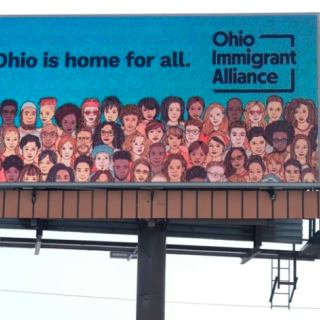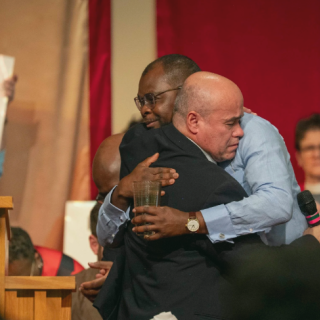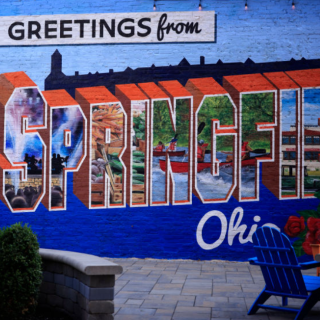Advertisement
Has heroism died at Harvard? Could today’s students emulate what transpired at Harvard in 1938? In that year, there was an inspiring event that has been conveniently laid aside by the present faculty—and which deserves to be better known. It occurred on November 16, 1938. At noon that day, some 500 Harvard and Radcliffe students crowded into Emerson Hall to express their outrage at Hitler’s Kristallnacht.
And what was Kristallnacht? It was the Nazi “Night of Broken Glass.” Exactly a week earlier, on November 9, 1938, Hitler’s feared SS Blackshirts had launched his opening crusade against Jews in Germany, with a frightening terrorist act. Following his annexation of Austria and the Czechoslovakian Sudetenland, Hitler had organized a looting and smashing of the glass windows of Jew-owned stores in Berlin and across Germany. It included the murder of several hundred Jews. Historians view it as a prelude to the Final Solution, the genocide that would claim the lives of six million Jews.
But the lunch-time gathering at Harvard turned out to be much more than just another student protest meeting. Besides starting an initiative that eventually brought 14 young refugees from Germany, Austria, and Czechoslovakia to study at Harvard—and two refugees to Radcliffe—it gave rise, with astonishing speed, to a national grassroots movement that helped hundreds of persecuted Central European students find refuge and education at colleges and universities across the United States (Harvard Magazine).
To commemorate the students’ act, a linden tree was planted in Harvard Yard the next spring, with a plaque beneath it, to inspire future generations. It still stands today as a monument to human achievement, beckoning to be revived. The event was so remarkable that even Albert Einstein heard about it, at the Princeton Institute for Advanced Study, and telegrammed the Harvard and Radcliffe students: “I greatly appreciate your humanitarian attitude, and the great act you bring to this emergency.” He himself had narrowly escaped the Nazis just five years before, to Princeton.
But Einstein did not commend the president of Harvard in his message, nor direct the telegram to him. Why? Because he, like most of Harvard, knew that James Conant was a Nazi sympathizer and an antisemite. Conant himself had failed to support the students’ rescue project, and had only approved it after public pressure had forced him to endorse it.
Conant’s pro-Nazi, anti-Jewish, views had been on display since his first year as president, in 1933. During his tenure there he would refuse to hire scientists if they were Jewish. In 1933, he even advised DuPont not to hire Max Bergmann, a Jewish scientist who had fled the Nazis, despite the fact that Bergmann was a world-class biochemist. What was important to Conant was that Bergmann was “very definitely of the Jewish type—very heavy” (Norwood, 48) Bergman would go on to a brilliant career at the Rockefeller Institute, where his lab produced two Nobel prize-winning scientists in biochemistry.
Conant may have had problems with Jews, but he apparently had no problem with Nazis. In the spring of 1933, Hitler had staged the Reichstag fire in order to seize ‘emergency powers’ and override the German constitution and to ultimately set himself up as dictator. Once in power, he had also set up his first concentration camp, in Dachau. Conant apparently wanted to showcase to the world that Harvard was in full accord with what Hitler stood for. And what better way to do this than—at Harvard’s next graduation—to invite Herr Ernst Hanfstaengl.
And who was Herr Hanfstaengl? He was a 47-year-old German, Harvard-educated, and one of Hitler’s few intimate friends. So close was he to Hitler that he had sheltered and hidden him after Hitler had been wounded in the failed Munich Beer Hall Putsch of 1923, and then in 1925 he had helped finance Mein Kampf, which Hitler had written in prison.
So Conant set out to have Hanfstaengl honored by administration and faculty in a special graduation ceremony in spring 1934. He obviously saw nothing wrong with honoring a man who had been quoted as saying “the Jews are the vampires sucking German blood,” and that Hitler was the man “who is saving Germany and civilization.” After he joined the Nazi party, he glowingly stated that “what Hitler is able to do to a crowd in 2½ hours will never be repeated in 10,000 years.”
The Harvard Crimson immediately fell into line with Conant, writing of the coming visit: “if Herr Hanfstaengl is to be received, it should be with the marks of honor appropriate to his high position in the government of a friendly country (Hitler’s Nazi Germany)—a great world power.”
Due to pressure from the American public, however, Conant and Hanfstaengl eventually had to call off the honor ceremony on graduation day. Conant still insisted that Hanfstaengl attend receptions at the homes of prominent alumni, and cap off the day with a tea party at Conant’s home. Thus Hanfstaengl was eventually honored, and for this, he gave Conant the Nazi Salute when he departed:
Conant continued his pro-Nazi activities in 1936. As Harvard’s representative to Heidelberg University’s 500th anniversary celebration, he sent the head of Harvard’s math department, George Birkhoff. Birkhoff—whom Einstein termed “one of the world’s great anti-Semites”—happily took part in the celebration, for he could stand alongside Goebbels, Himmler, and the other top Nazis at the event.
Conant’s actions were no bar to his advancement. He would be rewarded with a 20-year term as president of Harvard, setting the Nazi tone for the university for the next 90 years—the tone that would culminate in Harvard’s students’ celebrations of the “Second Holocaust of the Jews” on October 7, 2023, by Hamas terrorists.
Today, Harvard is at a crossroads. It can continue to follow the path set by James Conant, or it can follow another.
And for this, I have a suggestion. Each spring its students and faculty should visit the linden tree in Harvard Yard. It still stands where it was originally planted by the heroic students of 1938, in order to inspire future generations. Harvard should listen to the watchwords its blossoms are still whispering, namely that “truth, integrity, and the courage to act” are what matter. No more 300-page task-force reports, but right action. If Harvard began to act in the spirit of ’38, its Golden Age and the spirit of those heroic students might return once again.
------------
David Miles is an independent scholar, researcher, and journalist, focusing on American and European politics. He lived and studied in Germany for three years and in France for one. He has a BS in math and a Ph.D. in German.



